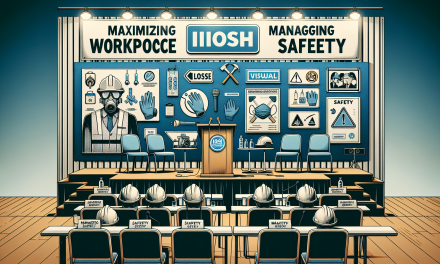Table of Contents
- Introduction
- Understanding the Process
- Start-up Phase
- Commissioning Phase
- Troubleshooting Techniques
- Seminar Highlights
- FAQs
- Conclusion
Introduction
In the world of process plants, start-up, commissioning, and troubleshooting stand as critical phases that require not just knowledge, but also hands-on experience. Whether you work in oil and gas, chemicals, pharmaceuticals, or food processing, mastering these skills can significantly enhance operational efficiency. Understanding how to effectively navigate these phases is vital for anyone involved in the lifecycle of a process plant.
Understanding the Process
Before immersing ourselves in the nuances of each phase, it is essential to understand the overarching processes involved in a successful plant launch. Each step, from planning through execution, involves meticulous attention to detail.
The Role of a Process Plant
Process plants are facilities where raw materials undergo a series of transformative processes to create finished products. These plants are at the heart of various industries, providing essential resources and products. Therefore, every phase, particularly start-up and commissioning, plays a significant role in ensuring the plant’s operations are efficient, reliable, and safe.
Start-up Phase
The start-up phase is a pivotal moment in the life of a process plant. Here, teams begin the transition from a static state of construction to dynamic operations.
Planning for Successful Start-up
Effective planning sets the tone for a successful start-up. All stakeholders must communicate openly and align their expectations. During this phase, teams should develop a detailed start-up plan that outlines the necessary procedures, timelines, and safety protocols. Additionally, anticipating potential challenges allows teams to prepare and strategize accordingly.
Executing the Start-up
Once planning is complete, the actual start-up occurs. This phase may begin with system checks to ensure all components function correctly. Moreover, operators should follow the start-up plan diligently. Consistent monitoring of all systems leads to the identification of any irregularities, ensuring that the plant functions as intended from day one.
Importance of Team Collaboration
During the start-up phase, collaboration is key. Different departments must unite, sharing insights and information efficiently. For instance, operators, maintenance personnel, and engineers should maintain open lines of communication, allowing for quick resolutions to any issues that arise.
Commissioning Phase
Following start-up, the commissioning phase takes center stage. This phase’s primary purpose is to verify that all systems operate according to design specifications before the plant enters full production.
Defining Commissioning Activities
Commissioning activities encompass a variety of tasks, including functional testing and safety verification. A comprehensive commissioning plan should cover everything from equipment checks to system performance assessments.
Use of Checklists
Checklists play a critical role in this phase. They ensure all systems receive thorough attention and verification. By following a detailed checklist, teams can identify overlooked areas that may require adjustments or further testing.
Finalizing the Commissioning Process
Once commissioning completes, operators conduct a final review. This review ensures that all systems work together seamlessly and meet the predetermined safety standards.
Troubleshooting Techniques
Even with meticulous planning and execution, challenges may arise. Troubleshooting becomes an essential skill that every team member should master.
Common Issues Encountered
Common problems during the start-up and commissioning phases may include equipment malfunctions or system misalignments. Understanding these issues will allow operators to respond swiftly and effectively.
Effective Troubleshooting Strategies
Using systematic approaches to identify and resolve issues is critical. Here are a few strategies to consider:
- Root Cause Analysis (RCA): This method focuses on determining the underlying cause of a problem rather than just addressing symptoms.
- Team Brainstorming Sessions: Collaborating with team members can provide new insights into potential solutions.
- Documentation Review: Analyzing operational records can reveal patterns or recurring issues that need resolution.
The Value of Simulation Training
Simulation training can also prove invaluable for troubleshooting. By recreating operational conditions in a controlled environment, teams can practice their responses, equipping them with the skills to tackle real-world issues when they arise.
Seminar Highlights
Attending seminars can significantly enhance your knowledge and skills. One such opportunity is the Process Plant Commissioning & Troubleshooting Seminar. This seminar provides deep insights into practical strategies used in the industry today.
Networking Opportunities
Moreover, seminars facilitate networking with industry professionals. Building relationships with peers can open doors to collaboration, mentorship, and shared learning.
Interactive Learning
During these events, participants engage in interactive discussions, case studies, and hands-on activities that bring concepts to life. This practical approach to learning enhances retention and understanding, making it easier to apply new knowledge in your work.
FAQs
What is the difference between start-up and commissioning?
Start-up refers to the initial phase of bringing a plant to operational status, whereas commissioning focuses on validating that systems meet design requirements and operate safely.
What common challenges arise during troubleshooting?
Common challenges include equipment failures, miscommunication among team members, and a lack of comprehensive documentation that can hinder effective problem-solving.
How can I enhance my troubleshooting skills?
Participating in seminars, practicing root cause analysis, and engaging in simulation training can significantly enhance your troubleshooting abilities.
Conclusion
Mastering the intricacies of process plant start-up, commissioning, and troubleshooting is essential for professionals aiming to excel in this field. Through proactive planning, effective communication, and continuous learning, teams can navigate these phases successfully. Engaging in seminars, such as the Process Plant Commissioning & Troubleshooting Seminar, offers vital resources and connections that are worth exploring. In the ever-evolving landscape of process management, equipping yourself with the right skills and knowledge will always be beneficial.
Additionally, exploring related topics can further enrich your expertise. Consider reading about Mastering Negotiation and Conflict Management in Organizations, discovering insights from the Leading Strategic HR Transformation Conference, or understanding vital aspects of Process Technology Training Conferences. Additionally, navigate the future of energy through the Energy, Carbon, and Environment Conference, and unlock your potential by learning about the Business Systems Analysis Conference. These resources can serve as invaluable tools as you continue to grow in your professional journey.





